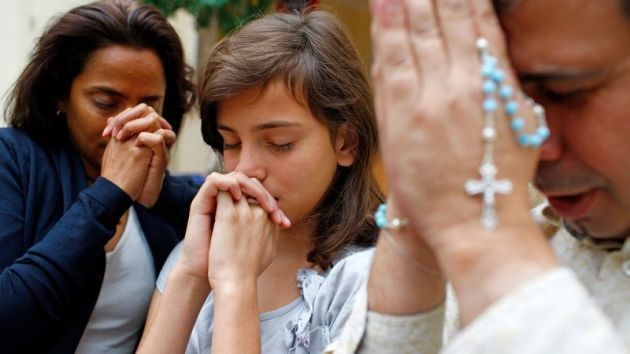Despite vaccinations, more than 25 percent of US churchgoers not planning in person attendance: Survey

When the novel coronavirus swept the world, people stopped going to church and many started attending religious services online.
But as the world gets vaccinated against COVID-19 and many stream back to in-person services, a significant number seem in no hurry to get back into the pews, Christian Headlines reports.
It cited a recent poll by AP-NORC of Chicago University that found that over 25 percent of people who attended religious services at least once a month prior to the COVID-19 pandemic in the United States have no immediate plans to return to their church, synagogue, or mosque.
The nationwide poll was conducted June 10–14 with 1,125 adults and found that a big majority (73 percent) of people who attended religious services at least monthly before lockdowns plan to attend such services in-person in the next few weeks.
Overall, 39 percent of those polled are satisfied with the speed in which local restrictions to prevent the spread of the coronavirus have been rescinded.
At the same time, nearly as many, 34 percent, are concerned that the restrictions have been lifted too quickly, while 27 percent feel things haven't been relaxed soon enough.
But people in urban areas are much more likely to say restrictions have been lifted too quickly than those in the suburbs or rural areas.
Meanwhile, 34 percent of respondents in general plan to return to attending religious services in person in the coming weeks, but 27 percent do not plan to go back just yet, Christian Headlines reported.
Scott McConnell, executive director of the evangelical research firm Lifeway Research, told the Associated Press that churchgoers are lost in limbo after many churches lost steam when in-person services were shut down during the pandemic.
"That's a lot of momentum to lose and a lot of people stepping out of the habit" of weekly worship, McConnell said.
At this point in the pandemic, just a quarter of Americans are very concerned that lifting restrictions will lead to increased rates of infection in their area, though 34 percent are somewhat concerned.
Forty-one percent are not very or not at all concerned that rescinding local restrictions will cause more infections. In May 2020, 54 percent were seriously concerned that lifting restrictions would lead to more people getting sick.
Even as the Centers for Disease Control and Prevention (CDC) has relaxed guidelines regarding the wearing of masks, Americans continue to report high levels of mask wearing and social distancing. Vaccinated people are more likely to take these precautions against the coronavirus than those who are not vaccinated.
Earlier this year, a Gallup analysis showed that for the first time in nearly 80 years, more than half of Americans reported having a formal membership in a house of worship.
In 1937, when Gallup first measured formal membership at houses of worship, 73 percent of respondents reported having a membership at a house of worship.
Membership numbers remained steady until 1998 when numbers began to decline. As of 2020, 49 percent of American's report having a formal membership at a house of worship.
The decline in church membership is primarily a function of the increasing number of Americans who express no religious preference," said Gallup senior editor Jeffrey M. Jones
"Over the past two decades, the percentage of Americans who do not identify with any religion has grown from 8 percent in 1998-2000 to 13 percent in 2008-2010 and 21 percent over the past three years," said Gallup senior editor Jeffrey M. Jones in March.
